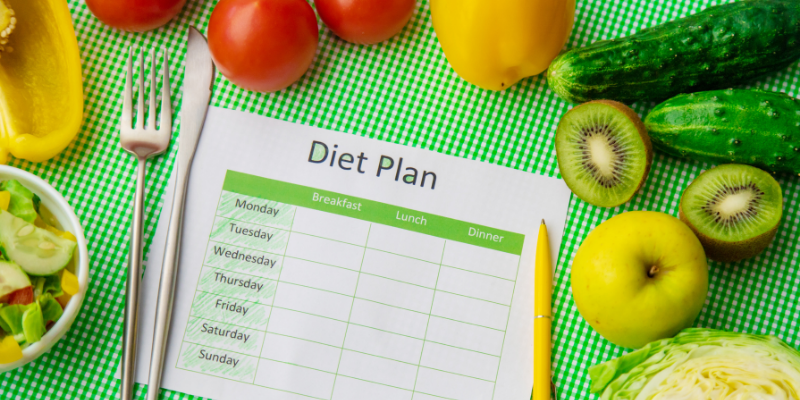If you have high uric acid levels in your blood, it’s important to be mindful of the foods you eat, as certain foods can increase uric acid production or make it more difficult for your body to excrete it. Here are some general guidelines for foods to eat and avoid if you have high uric acid:
Foods to eat:
- Low-purine foods: Purines are substances found in many foods that can be broken down into uric acid. Foods that are low in purines, such as fruits, vegetables, and whole grains, are generally considered safe to eat.
- Dairy products: Milk, cheese, and yogurt can help lower uric acid levels by increasing the excretion of uric acid in the urine.
- Water: Drinking plenty of water can help flush uric acid out of your body.
Foods to avoid:
- High-purine foods: Foods that are high in purines, such as organ meats (e.g., liver, kidney), anchovies, herring, mackerel, and gravy should be avoided.
- Alcohol: Alcoholic beverages can increase the production of uric acid and also reduce the excretion of uric acid by the kidneys.
- Sweetened drinks: Drinks that contain high-fructose corn syrup or other added sugars can also increase the risk of gout and kidney stones.
It’s also important to be mindful of your portion sizes when eating, as being overweight or obese can contribute to high uric acid levels. If you’re unsure about what foods you should be eating or avoiding, you should talk to a healthcare provider or a dietitian. They can help create a personalized meal plan that’s right for you.
It’s also important to mention that dietary changes alone may not be enough to lower high uric acid levels and a combination of lifestyle and medication treatment may be needed in order to bring them to normal levels.
10 Foods To Eat In High Uric Acid
Whole grains are a source of complex carbohydrates and dietary fiber, and they can be a beneficial part of a healthy diet, even for those with high uric acid levels. Whole grains contain purines, which can be broken down into uric acid, so it is important to be mindful of portion sizes when consuming these foods. Eating small amounts of whole grains, such as brown rice, oats, and quinoa, can be beneficial for those with high uric acid levels, as long as the portion sizes remain small. Additionally, it is important to choose whole grain varieties over refined grains, as refined grains tend to contain higher levels of purines.
It is generally believed that consuming low-fat dairy products can help to reduce the level of uric acid in the body. This is because low-fat dairy products contain fewer purines, which are compounds that are broken down into uric acid. As the body breaks down purines from the food we eat, it produces uric acid, so if we eat fewer purines, we will have lower levels of uric acid. Additionally, dairy products are also a good source of calcium, which helps to reduce the absorption of uric acid in the body and can help reduce its levels.
Cold-water fish, such as salmon, mackerel, and tuna, are excellent sources of protein and omega-3 fatty acids, and may be beneficial for lowering uric acid levels. These fish are also low in purines, the compounds that break down into uric acid in the body, so they are generally safe to eat for people with high uric acid levels. Additionally, omega-3 fatty acids may help reduce inflammation, which can further reduce uric acid levels.
Nuts and seeds can be high in purines, which can contribute to high uric acid levels. Some nuts and seeds, such as peanuts, walnuts, sesame seeds, and pumpkin seeds, are particularly high in purines. To avoid increasing uric acid levels, it is recommended to limit or avoid the consumption of these foods.
Legumes are generally quite low in purines, which are the precursor for uric acid. However, some legumes such as dried beans, peas, and lentils have higher amounts of purines and therefore can raise uric acid levels. It is recommended to limit consumption of these legumes to 1-2 servings per week. Soaking legumes prior to cooking may also reduce their purine content.
If you have high uric acid levels, it is important to be mindful of the foods that you eat. While some fruits are high in vitamin C, they may also be high in fructose, which can worsen uric acid levels. Fruits that are safe to eat for high uric acid include citrus fruits like oranges, lemons, and limes, as well as strawberries, kiwis, and papayas. These fruits are high in vitamin C, antioxidants, and other beneficial nutrients, making them a great addition to your diet.
Some of the best vegetables to eat when dealing with high uric acid levels are spinach, kale, Brussels sprouts, mustard greens, bell peppers, garlic, onions, and cabbage. These vegetables are all high in antioxidants, which can help protect the body against oxidative damage that can be caused by high uric acid levels. Additionally, they are also rich in vitamin C, which can help neutralize the uric acid levels in the body, as well as fiber, which can help reduce inflammation. Eating these vegetables can help reduce uric acid levels, as well as improve overall health.
Folate is an important nutrient for overall health, and is especially important for people with high uric acid levels. Eating a variety of fruits and vegetables that are high in folate can be beneficial for people with elevated uric acid levels. Some of the best sources of folate include dark leafy greens such as spinach, kale, and collard greens; citrus fruits such as oranges, grapefruits, and lemons; and legumes such as lentils, black beans, and chickpeas. Other sources of folate include broccoli, Brussels sprouts, asparagus, avocados, and nuts. Eating a variety of fruits and vegetables high in folate can help maintain healthy uric acid levels and overall health.
For individuals with high uric acid, lean meats and poultry are excellent sources of lean protein, which can help to decrease the amount of uric acid in the body. Lean meats and poultry are especially beneficial for those with high uric acid because they contain very little fat and no purines, a compound that can contribute to an increase in uric acid levels. Additionally, these foods are also a great source of B vitamins and iron, which can help to reduce inflammation in the body.
Fermented foods, such as sauerkraut, kimchi, and miso, are high in uric acid and should be avoided if you have high uric acid levels. These foods also contain high levels of yeast, which can increase uric acid levels. Pickled foods, like pickles, olives, and onions, should also be avoided as they are high in sodium, which can increase uric acid levels.
10 Foods To Avoid In High Uric Acid
Red meat should be eaten in moderation or avoided altogether if you have high uric acid. Red meat is high in purines, which can increase uric acid levels in the blood. Eating too much red meat can cause a buildup of uric acid and lead to gout, kidney stones, and other health problems. If you have high uric acid, it is best to limit your consumption of red meat and choose leaner cuts. Eating more plant-based proteins such as beans, lentils, and tofu can be beneficial for controlling uric acid levels.
Organ meat should be avoided for those with high uric acid levels, as high levels of purine in the organ meat may further increase uric acid levels. Instead, lean proteins such as lean cuts of beef, pork, and poultry are preferable. Fish and shellfish, which contain lower levels of purine, may also be enjoyed in moderation.
Shellfish can be high in purines, which can contribute to high uric acid levels. Eating too much shellfish can cause a sudden spike in uric acid levels, which can increase the risk for gout and other health problems. It is best to limit the intake of shellfish, especially in those with known high uric acid levels.
Alcohol can increase uric acid levels in the body, leading to gout, a painful condition caused by the accumulation of uric acid crystals in the joints and tissues. Therefore, it is recommended that those with high uric acid levels should avoid alcohol or limit their intake.
Sugary drinks can lead to an increase in uric acid levels, especially when consumed in large amounts. This is because sugar is metabolized and produces excess purines, which are then broken down into uric acid. Therefore, it is essential for those with high uric acid levels to limit or avoid sugary drinks completely.
are considered to be the most beneficial of all vegetables when it comes to managing high uric acid levels. These vegetables include asparagus, spinach, cauliflower, mushrooms, and Brussels sprouts. They are rich in vitamins and minerals and contain low amounts of purine, making them an excellent choice for patients with high uric acid. Additionally, consuming high-purine vegetables can help reduce the risk of developing gout and other related conditions.
should be avoided as they tend to increase uric acid levels in the body. Whole grains, such as oats, quinoa, barley, and wheat, are much better for people with high uric acid levels as they contain more fiber and help the body get rid of excess uric acid. Eating foods high in purines, like red meat, seafood, and alcohol, should also be avoided, and a balanced diet should be maintained to help regulate uric acid levels.
Processed food contains high amounts of sodium and other preservatives, which can lead to an increased risk of developing high uric acid levels. Additionally, processed food is often high in saturated fat, which can also lead to increased uric acid levels. Eating a balanced diet with plenty of fresh fruits and vegetables, lean proteins, and complex carbohydrates is the best way to keep uric acid levels in check.
such as peanuts, cashews, pistachios, and pumpkin seeds, should be avoided as they are high in purines, which can increase uric acid levels. To help manage uric acid levels, it is best to replace these nuts and seeds with plant-based proteins such as beans, tofu, and quinoa.
has been linked to an increased risk of developing gout, a type of arthritis caused by the buildup of uric acid in the joints. High-fructose corn syrup is a common sweetener found in many processed foods and beverages, and it has been linked to an increase in uric acid levels in the body. This increased uric acid can lead to an increased risk of gout and other health issues. To reduce the risk of developing gout, it is important to limit your intake of high-fructose corn syrup and other sources of added sugars. Additionally, eating a balanced diet with plenty of fruits and vegetables can help reduce uric acid levels and promote overall health.




